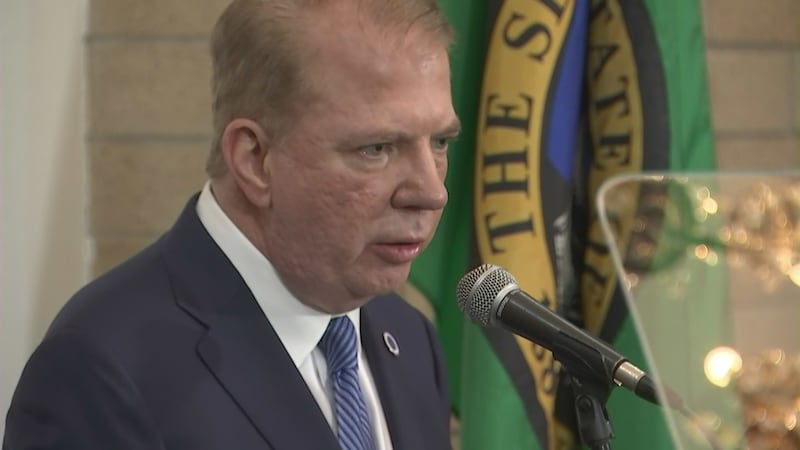During his State of the City address Tuesday morning, Seattle Mayor Ed Murray said he wants to increase property taxes this year to generate more money for the city’s homelessness crisis.
Murray said he formed an advisory group for how to raise $55 million for homelessness and he wants a funding package within two weeks.
For KIRO 7 News at 5, Graham Johnson is finding out how much more Seattle homeowners might pay and how much property taxes have been rising already. Watch on-air or here.
That $55 million per year would be paid for by residential and commercial property taxes – about $156 a year for the median household.
>>Related: Mayor's Office: Murray willing to sue President Trump over executive orders
Though the city budgeted $108 million for homelessness services combined over the last two years, Murray said it has not been enough.
"Not enough for those suffering from addiction.
Not enough for those who have been victims of crimes, like the young teenage girls who have been trapped in encampments and trafficked for sex.
Not enough for the three toddlers found without parents under the Spokane Street Viaduct.
We must do more to address the dangers faced by those living in unauthorized encampments," said Murray.
Murray said the additional money would allow the city to invest in mental health and addiction treatment and to get more people off the streets.
“For 3,000 people living unsheltered, our streets have become a default, inadequate and dangerous place to live,” said Murray.
The mayor said though raising taxes was not his first choice, he believes the residents of Seattle are ready to support such a measure.
“We had hoped for a vigorous partnership with the federal government, but we are on our own,” said Murray. "Developing a national housing and homelessness agenda is not a priority for the new president’s administration."
He hopes to qualify the property tax measure for the August ballot and challenged Seattle businesses to raise $25 million over the next five years that will get more homeless into housing.
The plan comes as Seattle residents within the Sound Transit 3 boundaries are already facing hefty property tax and car tab hikes after the controversial ST3 measure passed in November.
Cox Media Group








